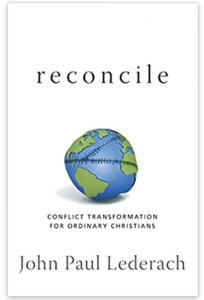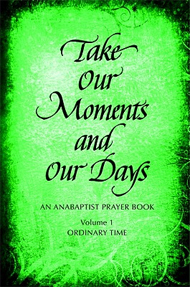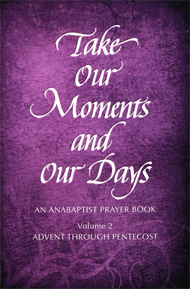Theological History
The journey for our forbearers began in 1517 during the time of the Protestant Reformation. The early leaders of this movement took the road less travelled and joined in with the radical reformation. The radical reformers believed that the reforms of the church were good but that they did not go far enough. Many of them were students of the early reformers and were disappointed in Zwingli and Luther for the apparent compromises they made. As a result, the Anabaptists were persecuted as heretics by the Protestants and we were persecuted as heretics by the Catholics.
From the radical reformation, these groups, and their beliefs, found their way into the new world. And in the new world was formed a unique family that eventually became known as the Brethren in Christ in the US and in Canada as the Tunkers and then the Brethren In Christ and then the Be In Christ.
During its journey from 1517 to the new world our denomination would be formed by four theological streams of thought. This is one way we are different from the Mennonites. We were not formed just by anabaptism. We have other forces at work in our denomination. All mennonites are anabaptists but not all anabaptist are mennonites.
ANABAPTISM
If we start from the very beginning, we should say that Anabaptism was the first original theological stream of the BIC and is the theological stream that most differentiates us from other evangelical groups. Someone said, in our theological history, anabaptism is the trunk of the tree and the other streams are branches.
The term anabaptist was used to describe and define certain Christians during the Reformation. Since many of them had been baptized in their infancy, they chose to be baptized as believing adults. So their enemies called them anabaptists – “re-baptizers.”
Additional resources on Anabaptism are included below this section. More in depth lectures are provided on our theological identity at New Pastors Orientation and in the Emerging Pastors program.
PIETISM
The second stream, Pietism, comes from the 17th century German believers who rejected an overly intellectualized expression of faith that had become popular. Pietism emphasizes a conversion experience and heart-felt religion. And it was Pietism that first led our forbearers out of the Mennonite church, for they believed that faith shouldn’t be over-intellectualized. Correct doctrine and believing all the right things was not enough for the early anabaptists. And besides, who has perfect doctrine? Real faith must lead to real heart change, a real relationship with Jesus, and a testimony to the power of the Holy Spirit at work in our lives. Those were the marks of true believers.
For BIC, the Christian faith is a relationship with God that is to be enjoyed with the heart, even as it is affirmed with the head.
A favourite hymn of Pietism was Happy day, happy day, Jesus washed my sins away. Or people would say things like, Now that I know Jesus the sky is a little bluer, the grass a little greener.
WESLEYANISM
The third historical stream that has shaped the BIC is Wesleyanism (named after John Wesley-founder of the Methodists), and the Holiness movement that was closely associated with Wesleyanism, especially in the US.
The Holiness movement in the US used Wesleyan language to promote the idea of a completion of sanctification in this life, or Christian perfection. This was part of BIC discussion even in the 1990’s, but its influence has not lasted.
What was most important about Wesleyanism to the BIC was it was where we found Arminianism. It was an idea that was compatible with BIC views on discipleship and the freedom to follow Jesus faithfully, or not, as opposed to the Calvinistic view of predestination and eternal security.
EVANGELICALISM
The fourth stream which has made its way into our denomination is evangelicalism. This one is the most recent and more controversial among some long-term, theologically oriented BIC, especially due to the political climate today and the aberrations that go along with evangelicalism. However, there is no denying the force that evangelicalism has had on the BIC and where those distinctives are positive reflections of Jesus we welcome them.
Anabaptism Resources
Below are some curated readings and resources that will help you on your journey to better understand our theological heritage. David Augsburger wrote “A Dream” that many find to be a helpful and concise overview of the vision of the anabaptist movement.
A Dream
DAVID AUGSBURGER
From the beginning in 1525 through the present,
anabaptists have dreamed that it is:
Reasonable to follow Jesus Christ
daily, radically, totally in life.
Practical to obey the Sermon on the Mount,
and the whole New Testament,
literally,
honestly, sacrificially.
Thinkable to practice the way of
reconciling love
in human conflicts and warfare,
non-defensively and
non-resistantly.
Possible to confess Jesus as Lord
above all
nationalism,
racism,
or materialism.
Feasible to build a church which is
voluntary,
disciplined,
and mutually committed to each other in Christ.
Conceivable to live simply,
following the Jesus-way
in lifestyle, in possessions,
in service.
Classic Readings
There are some classic books below that would be a good starting point for understanding anabaptism. Please note that during his lifetime John Howard Yoder came into personal disrepute for sexual abuse charges. However, his book, The Politics of Jesus, is still considered a seminal text for its content. I have chosen to list it here as an option for you to consider.
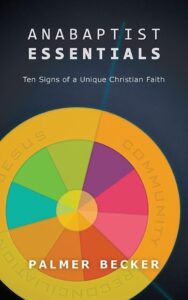
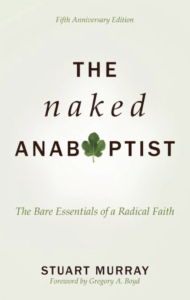

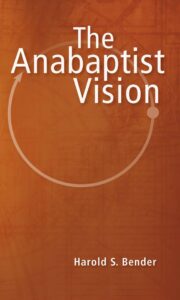
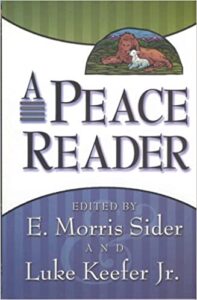
Additional Readings
Although the books below are not written as specifically anabaptist texts, they are well worth reading as they speak into particular aspects of Christian living and theology related to our vision of discipleship.



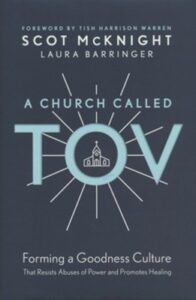
Resources
Pursuing Peace
Mennonite Central Committee produces wonderful resources on social justice and peace building. Below is an ebook called Pursuing Peace. For more excellent resources from MCC, visit their website.
Reconcile
Reconcile: Conflict Transformation for Ordinary Christians, by international mediator John Paul Lederach serves as a guidebook for Christians seeking a scriptural view of reconciliation and practical steps for transforming conflict.
Lederach’s work in war zones on five continents, this revised and updated book tells dramatic stories of what works—and what doesn’t—in entrenched conflicts between individuals and groups. Lederach leads readers through stories of conflict and reconciliation in Scripture, using these stories as anchors for peacemaking strategies that Christians can put into practice in families and churches.
Peaceful at Heart
While there are plenty of books by men, for men, on the topic of “Christian masculinity,” these books generally fail to address men’s propensities for violence and the traditional inequity between men and women, often endorsing inequity and sanctioning aggressive behavior as an appropriate “manly” response to conflict. Peaceful at Heart offers a uniquely Anabaptist Christian perspective on masculinity. The vision of masculinity presented in this book is for a manhood that is peaceful, just, caring, and more sensitive to women and children than both traditional images of masculinity and the hyper masculine images promoted by contemporary popular culture and wider evangelical Christianity.
The study guide below is a companion to the book Peaceful at Heart by Dan Epp-Tiessen and is published in partnership with Mennonite Central Committee to facilitate conversations about masculinity, church and our Christian faith. A Kindle version of the Peaceful at Heart book is now available through Amazon. For the free PDF study guide, click on the cover below. A comprehensive list of Peaceful at Heart resources is available at Common Word bookstore.
Hunger For Justice Youth Guide
The Hunger for Justice, Learning and Reflection Guide for Youth Groups is designed for Christian youth and school groups in Canada who wish to explore how Christians are called to respond to hunger, and other injustices, in the world. Click on the image below to visit the Canadian Foodgrains website for more information.
Anabaptist Prayer Books
Anabaptist Mennonite Biblical Seminary (AMBS) has produced anabaptist books for prayer and study. AMBS states, “The distinctive Anabaptist flavour of this collection of daily prayers is evident in the predominance of Jesus’ voice, the space for communal reflection on scripture, and the specific choices of Bible readings.” Click on the book covers below to jump to the site to learn more about the resources.
Anabaptist Witness
The Anabaptist Witness is a periodical of dialogue for the worldwide global anabaptist and Mennonite church. The Witness seeks to create a forum for conversation around mission theology and practice for the broad and diverse constituency that considers itself part of the anabaptist tradition. Click on the cover below to jump to the site to read the current issue.
Mennonite Encyclopedia
The Global Anabaptist Mennonite Encyclopedia Online (GAMEO) originally started in a 5-volume book format transitioned to an online portal. It is a searchable wiki of all things anabaptist and Mennonite. This is the place to go if you want to geek out on Mennonite history and tradition. If you are unsure of where to start, begin with the article on Menno Simons. Click on the cover below to jump to the site.
Intersections
Intersections is a quarterly periodical for promoting theory and practice-based examination of the wide range of issues that Mennonite Central Committee (MCC) and its partners encounter in carrying out disaster relief, community development, and peacebuilding initiatives. Intersections offers a space for MCC staff and partners, along with academics and development, disaster response, and peacebuilding practitioners to reflect critically and constructively on MCC’s work. Click on the cover below to jump to the site.


